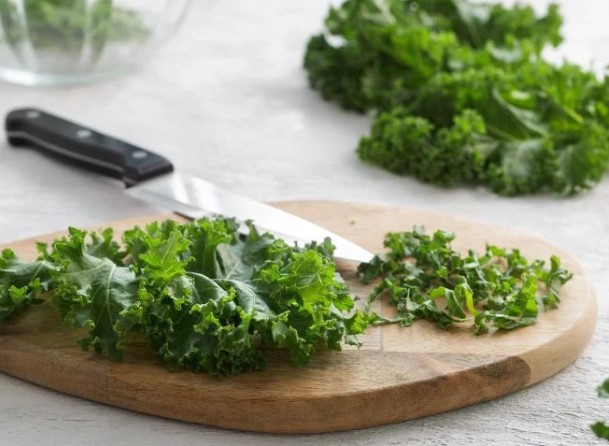
Researchers from the University of Missouri report that pairing kale with oil-based dressings or sauces not only helps the body absorb more of its nutrients but also improves its flavor.
Think that kale salad you’re enjoying is automatically a superfood? Without the right addition, it may not be providing all the benefits you expect.
But there’s good news.
Scientists at the University of Missouri have identified a simple (and delicious) way to help your body take in more of kale’s valuable nutrients: use oil-based dressings or sauces. In short, you can keep eating your kale and get more out of it at the same time.
A recent study from Mizzou’s College of Agriculture, Food and Natural Resources (CAFNR) found that the method of preparation does not change the outcome. Whether kale is cooked or eaten raw, its full nutritional impact is unlocked when it is combined with olive oil, mayonnaise or any oil-based dressing. Researchers are now looking into how specially formulated dressings made with nanotechnology might enhance those effects even more.
“Kale is a nutrient-rich vegetable that contains carotenoids, including lutein, α-carotene and β-carotene, which have beneficial effects on overall health,” Ruojie (Vanessa) Zhang, assistant professor in the Division of Food, Nutrition and Exercise Sciences at CAFNR, said. “The problem is our bodies have a hard time absorbing these nutrients because they are fat-soluble rather than water-soluble.”
What Researchers Wanted To Learn
With those questions in mind, the research team began investigating whether cooking kale or adding specially formulated dressings/sauces could help the body absorb its carotenoids more effectively. These compounds, together with vitamins C and E and other natural plant components found in kale, have been associated with a wide range of health advantages, including improved vision, stronger immune function and a reduced risk of conditions such as diabetes, heart disease and certain forms of cancer.
To explore this, the scientists used a laboratory model designed to mimic human digestion. They evaluated kale in several forms: raw, cooked, raw or cooked with dressing/sauce, and cooked directly in sauce.
The Power of Oil-Based Sauces
They found that raw kale alone yields very low carotenoids absorption, and cooking it actually makes absorption slightly worse. The main finding came when they added the special nanoemulsion-based sauce: The simulated digestion model absorbed far more carotenoids, regardless of whether the kale was raw or cooked. In fact, cooking kale with the dressing/sauce worked just as well as mixing it in afterward.

















